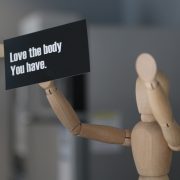The worst part of the week is not Monday morning, it’s Sunday evening. That’s when you start feeling all the anxiety and stress of heading into a new work week. Many of us spend the last few precious moments of the weekend catastrophising about what the next morning could possibly bring. The solution to beating the Sunday Scaries might be unexpected – doing the bare minimum on Mondays.
TikToker Marissa Jo Mayes first made the phrase popular on social media. She said in her video, “Bare Minimum Monday is where I take the pressure off and only hold myself accountable to completing the least amount of work necessary to get by that day. Nothing extra, no overachieving.” According to Mayes, easing into the week instead of diving in headfirst helped her when she was experiencing burnout.
In our culture, Mondays come with a lot of pressure. The feeling of having a huge to-do list to jump into a brand new week can be stressful. Not to mention the fact that we burden ourselves even further with the “fresh start” mentality – another unreasonable expectation dumped onto poor Monday.
bare minimum Mondays
take it easy Tuesdays
wind down Wednesdays
take a break Thursdays
fuck it Fridays— DJ 🎱po (@mc___donald) March 22, 2023
“I think we set ourselves up for failure by trying to start afresh in a new year, month or week,” Shanaya (26), who works as an architect, said. “Putting all the pressure on one day has never helped me. I started small with my New Year’s resolutions this year and slowly worked towards making them a habit. The same logic could be applied to the beginning of the week too.”
Some people worry that such trends encourage slacking off at work and adversely affect productivity. In 2022, ‘quiet quitting’ became a hugely debated phenomenon in the workplace. It involves doing the bare minimum to meet the job description and never going above and beyond your role. Young people who were burned out, tired or simply didn’t enjoy their job stopped engaging with their work and focused only on what was absolutely necessary.
Taking Bare Minimum Mondays isn’t the same as quiet quitting, though. Quiet quitting points more towards resignation (perhaps in the literal sense, too) and giving up. But starting the week slowly is a step towards picking up the pace later on and ultimately increasing productivity while preserving mental health.
However, both methods are indicative that something’s not quite right with work culture today. It’s not laziness that’s pushing people to change their workplace priorities. Employee stress levels are skyrocketing today, and Gen Z is feeling the impact severely. Research conducted by health insurance company Cigna in 2022 shows that 91% of all Gen Z employees (aged 18 to 24) said they felt stressed at work. This number is only a little lower, at 87%, for Millennials (aged 25 to 34).
According to a study by Gallup, remote Gen Z and millennial employees (below the age of 35) are now less satisfied at their job. From 2019 to 2022, the percentage of engaged employees dropped by six points, and that of actively disengaged employees rose by the same number. Young folks don’t feel like their higher-ups care about them or give them opportunities to develop. The pandemic is responsible for a huge part of this workplace crisis.
“We’ve glorified not just hustle culture, but also mental exhaustion, burnout and overworking,” Rohit (19), who interns at a law firm, said. “The pressure to be productive is constant. We feel guilty taking breaks or admitting that it’s too much. So I think it’s a great idea to do the bare minimum on Mondays.”
Regardless of whether you love your job or not, experiencing burnout is normal. But if it happens often, it suggests that something needs to change. Bare Minimum Mondays might just be worth a shot if it means a healthier schedule and a stress-free work environment in the long run.





